
The Anatomy of a Revision Plan that gets Outstanding Results School study tips, Effective
Primrose Kitten is an experienced science teacher with a passion for helping students to achieve their best. As well as teaching science at both GCSE and A Level, she produces online resources and videos to support students with revision and exam preparation and is the author of the Oxford AQA GCSE Science Required Practicals Exam Practice Workbooks.
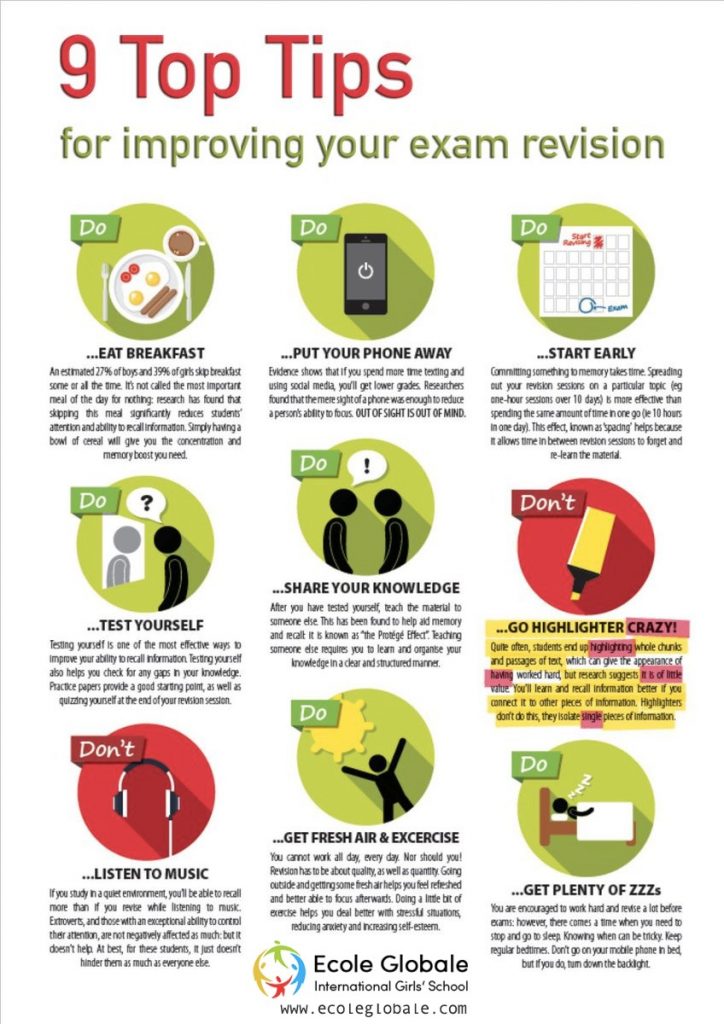
how to enhance your revision tactics
7 best last-minute A Level exam preparation techniques Do past year papers and participate in mock exams. Perhaps one of the best ways to do a last-minute revision is to experience a situation similar to the actual exam day. This can be achieved by doing past year exam questions. There are many benefits to this, which includes:
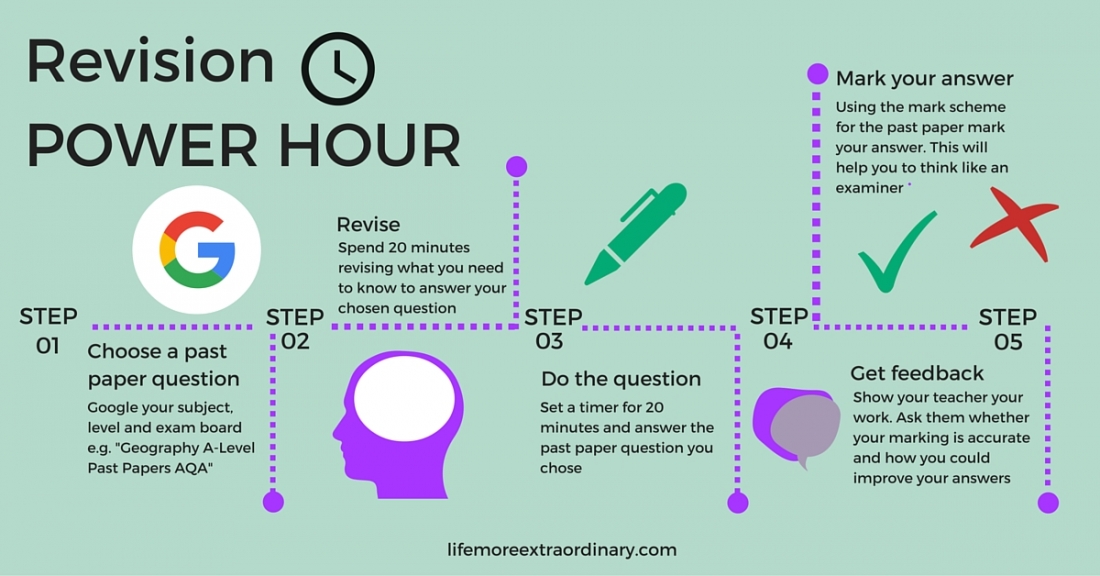
How to revise effectively for GCSE and A Levels
4. Blurting. Charlotte explains the Blurting technique. Watch on. Blurting is a new revision technique that you have probably seen all over TikTok. It's all about testing yourself over and over again until you remember the information, find out how to blurt your way to success with our step-by-step process. 5. Find the technique that works for.

Top 10 revision tips for Alevel students
Flash Cards. If you're into quiz shows and fancy yourself as some kind of quizmaster, flash cards might just be the revision tool for you - this can be one of the most effective A-Level revision techniques. If you consolidate your work - that is, check that you understand your notes - you are revising in a useful way.
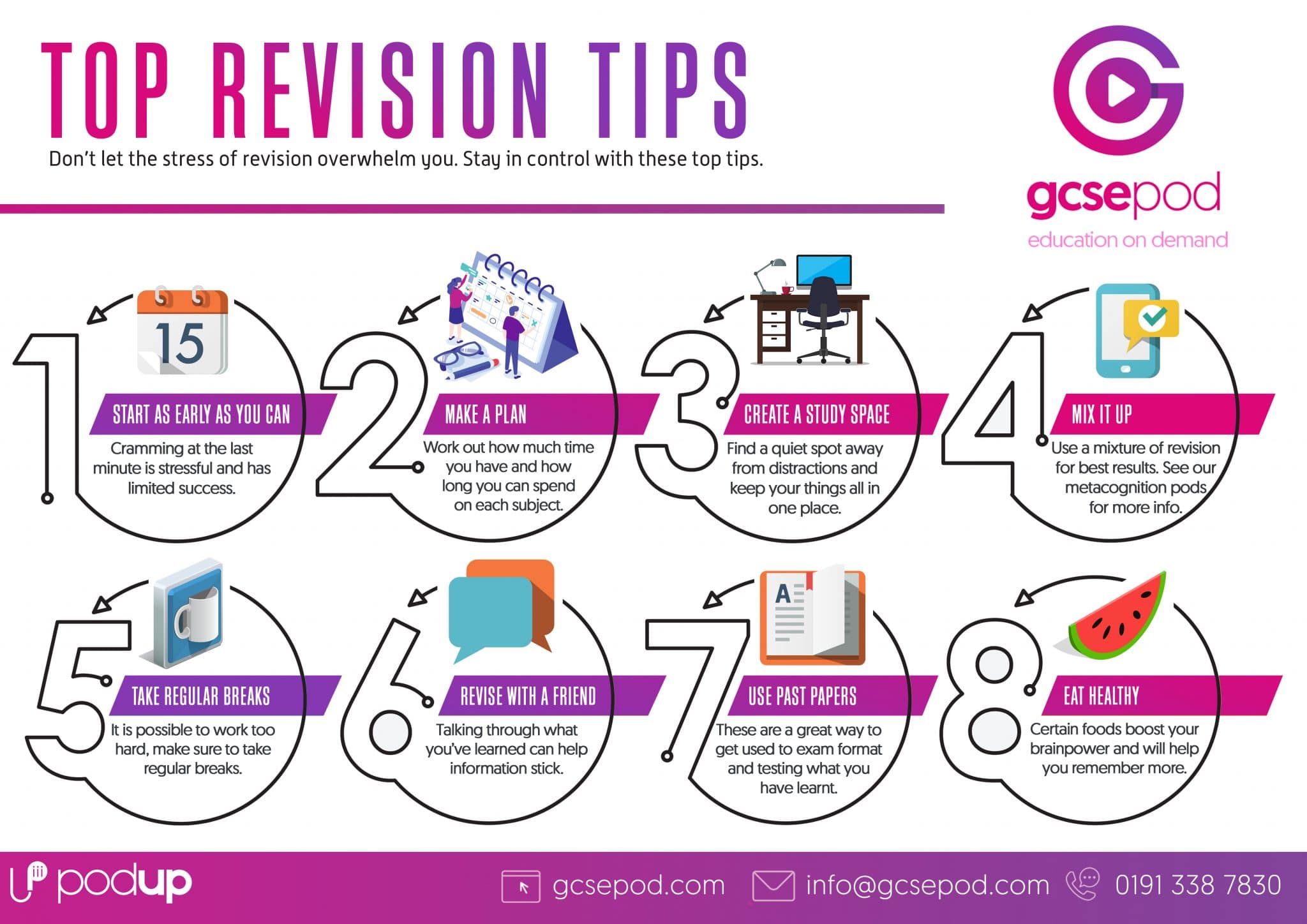
GCSE revision resources GCSEPod
Maths. At RevisionMaths you'll get loads of A-Level maths revision resources, exam tips, revision videos, covering pure maths topics like algebra, calculus, geometry and trigonometry as well as statistics and mechanics. MathsCentre comes from the Educational Broadcasting Services Trust and the Universities of Coventry, Leeds and Loughborough.

Tips for revision success Revision tips, Study skills, Study techniques
Alternatively, skip down to our top A-level revision tips including answers to common study questions. How to revise: revision tips from A* students. Here you can start getting your notes together, figure out a study plan and discover what techniques work best for you. This can save time when preparing for the real thing, later.

Top 10 revision tips to ace your exams Revision tips, Study skills, Education help
A-level exam season is a stressful time for everyone, so take the pressure off yourself by starting revision early. If you're wondering what you can do to make the whole process easier, here are some tried-and-tested tips to help you feel more in control. 1. Write a revision timetable. Simple but effective, a revision plan takes away the.

8 Tips for Successful A Level Revision A level revision, Revision, Tips
The more stressed you are, the more "in your head" you are going to get and the less well you are going to do. Obviously, revising is important but taking time for yourself is equally.
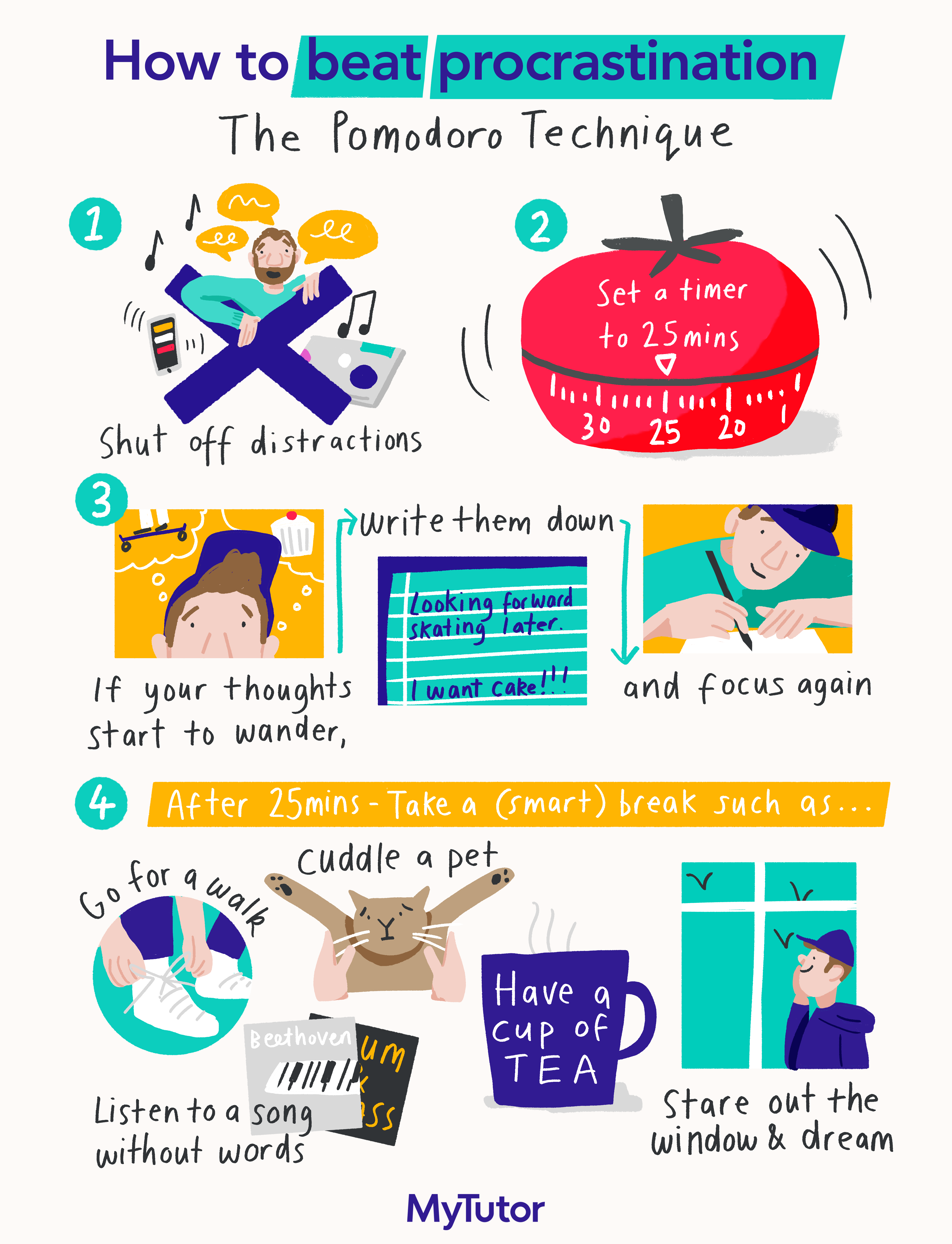
Gearing up for mocks our top revision tips MyTutor
Make sure to use revision techniques which continually test your knowledge. Answering practice questions and asking a friend to test you are great ways to make sure you stay on top of your knowledge. Scroll down to the next section to see the rest of our recommended revision techniques. Then, when you're ready, make sure you try past papers.

5 top tips for effective exam revision [infographic] The Student Blogger
1. Flashcards. Flashcards are one of the most popular methods for revision. They are simple to make and use, but also incredibly useful and versatile. Obviously, the first step in using flashcards as a revision technique is making the cards themselves. Make sure you know what content you are expected to revise.
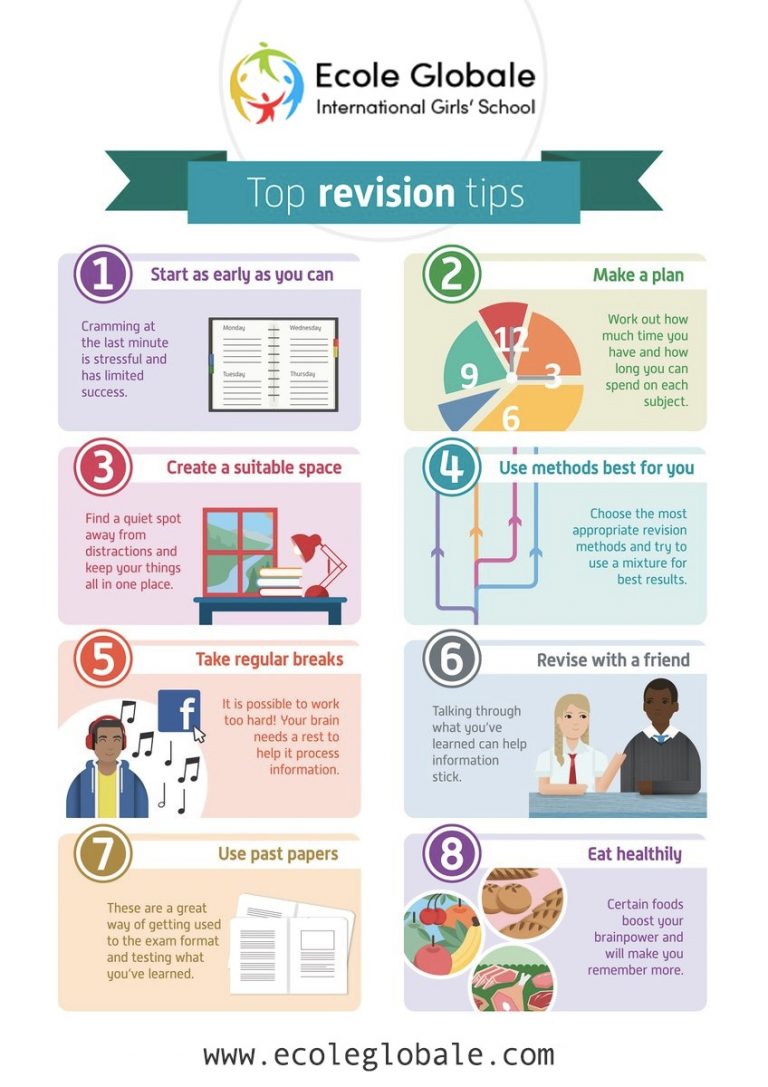
Below we have gathered the best revision tips for A-level from past students who got top marks in their exams. These tips will help you improve your revision and find what works for you so you can work towards the marks you need. Keep reading to jump to the top of your sixth form class. 1. Create a Revision Timetable.

Revision tips for A Level if you're studying for your A Level exams, there are plenty of study
Top tips for A-level revision. Revision doesn't necessarily mean sitting alone in your room reading endless books and study notes. Studying in shorter sessions with breaks, and revising different subjects in different ways, often works best for most; for example, what works best for Chemistry revision, may not be as suitable for Economics.

Beat exam stress with one of the best revision techniques you'll ever learn The Revision Power
Revision tips and guidelines for all subjects Outside of class At A-level, your work outside the classroom is the real key to achieving the very best grades. However, it's not just about the amount of time that you put in, but how effectively you use that time. What to do, and when
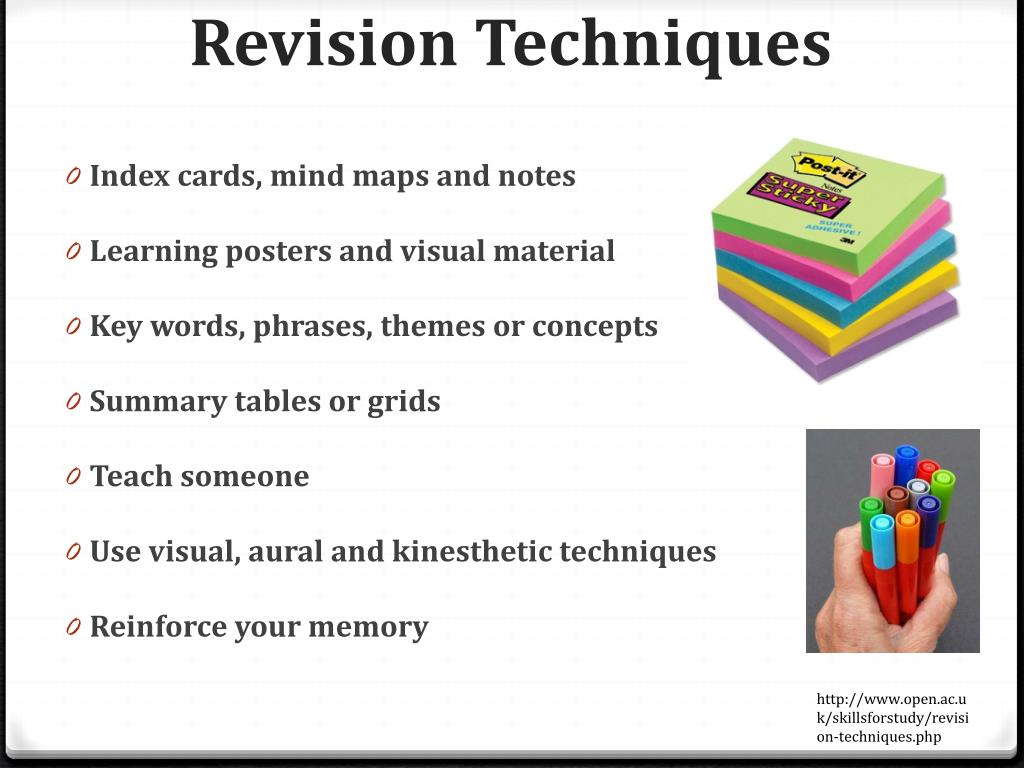
PPT Revision Techniques for GCSE students. PowerPoint Presentation, free download ID2590151
This ultimate guide provides 15 proven A-Level revision tips to help you master challenging concepts and achieve top grades. 1. Analyse Past Papers to Pinpoint Weaknesses. Past papers precisely indicate required knowledge and skills. Build a bank of previous years' papers in all subjects and work through them regularly under timed conditions.

What are the best revision tips for a level? in 2021 Revision tips, Study smarter not harder
There is a well-known time management method referred to as the 'pomodoro' technique which aids productivity. The technique is implemented as followed: Work for 25-minute chunks. Between each chunk give yourself a 5-minute break. After 4 breaks give yourself a longer 15/20-minute break.
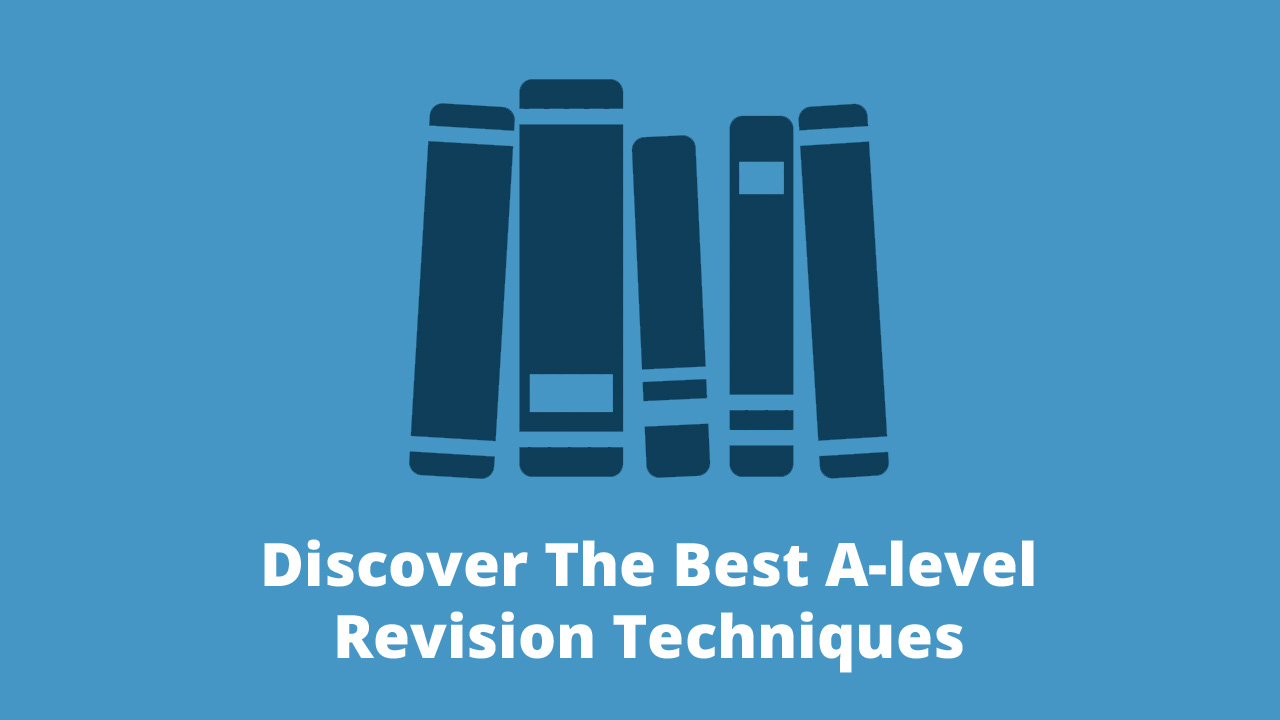
The Best Alevel Revision Techniques
This is our longest list of revision tips yet, and they all come from The Student Room members who have already sat their A-levels and walked out with at least one A*. These 58 easy-to-use tips will help you to maximise your revision, whether you're studying maths and science subjects or English, history and other essay-based subjects.